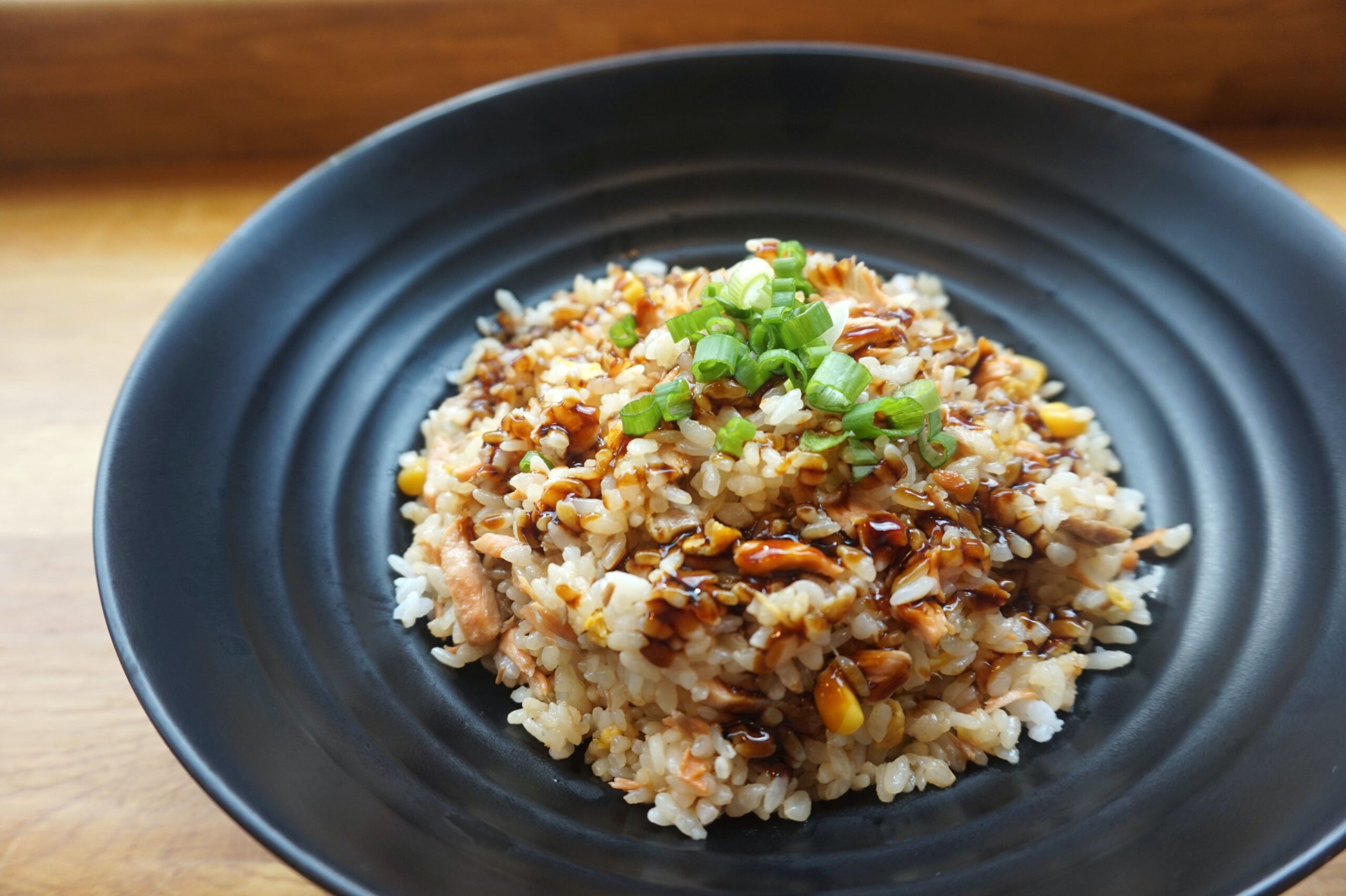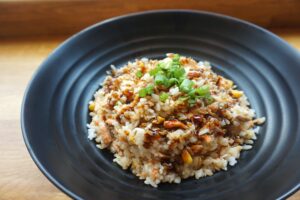
21 Feb A Complete Hand: Thiamine’s role in health
Introduction to Thiamine Deficiency
Food without nutrients is like a palm without fingers. While you can still give someone a good slap, it will not deliver the punch you need to deal with a real fool. Illustrated here is the peril of non-nourishing foods and the resulting problem of thiamine deficiency in our diets. Which of your digits would you willingly part with? The lowly pinky comes to mind as the most dispensable. It seems to be particularly useless, being of such small stature, always uncertain if it is the beginning or the end of the hand. The pinky has its place though, right next to God. It is also the pinky that has been used to anoint the gods, especially in ancient Egypt, and for making a quick promise. Life without a pinky is possible, just like life without thiamine, except easier. A body without thiamine is not only uneasy, it is dis-easy.
Like all vitamins, thiamine is a vital co-factor for living. Many vitamins are necessary cofactors for biochemical reactions to proceed. Several of these cofactors are ones that our bodies do not make. Because we do not make them, they are essential parts of our diet. We must either eat them like Vitamin B12, or we need an external source such as sunlight for Vitamin D.
Thiamine is almost as important as oxygen. To truly understand the importance of thiamine, we have to understand our biology’s chemistry. In order to use oxygen in the citric acid cycle — the biochemical reaction that results in ATP or energy — our body requires thiamine. If we do not have thiamine then scientists say that we are in a deoxidative state (without oxygen) or a state of pseudohypoxia. That just sounds bad. Every time you eat a cookie or a piece of fruit your body requires thiamine. All carbohydrates require thiamine to process them into energy. When we breakdown fat or protein for energy, we also require thiamine. All this happens inside the mitochondria. Wherever you have mitochondria you need thiamine.
Like hand washing or drinking enough water, the importance of thiamine is under-appreciated and overlooked.
Thiamine deficiency is usually thought to be a thing of the past that we cured with modern technology – just like with polio, rickets, and the 40-hour work week. The discovery of thiamine deficiency reads like a fairytale.
Once upon a time, there was a rich Commander who thought white rice was better than brown rice simply because of its color. Thus he commanded that everyone wealthy, a sailor or soldier eat only polished rice. The imprudent Commander did not know that polishing meant processing the hull off of rice and out went all the nutrients like thiamine. While the foolish commander, his wealthy friends and soldiers were noshing away on shiny polished white rice strange things started to happen. Their legs began to swell. They got weaker. Their hearts raced and they panicked because they were slowly going crazy.
Perhaps, this dis-ease explains all the wars that subsequently were waged post-Renaissance, but that is a tangential story for a different time.
“It’s a curse!” shouted the Commander’s wife and called for the priest. “No it’s a bacteria” yelled the Junior Commander and demanded antibiotics.
Along came an old wizard, who noticed that when sailors ate a balanced diet, they did not develop this disease known as beri-beri. Another younger wizard quietly figured out it was a cofactor that was thrown away by processing the rice.
The poor and the pigs were eating better than the rich and the sailors. The wizard called the missing piece vitamin B1 because it was discovered after vitamin A. Since then thiamine, like Vitamin D, is added or fortified in our food.
This new knowledge of a balanced diet would have been the story’s end, but a new supervillain has since emerged – The Great Western Lifestyle™. It chews up, spits out and leaves us needing more and more thiamine because:
- Excess calories. Anything that generates excess calories such as increased cholesterolemia, diabetes, and maple urine (syrup), even breastfeeding and pregnancy all start creating great demand for thiamine. The total number of calories which we consume has increased, thus our thiamine need has increased as well. A Big Gulp™ is a classic example of empty calories — a lot of sugar without any nutrient value. Our body uses up thiamine to process these empty and increased calories. If you regularly consume certain sweets like sweet tea then you will become thiamine deficient. If you stray away from drinking water, you will become thiamine deficient because the only way that your body can get water from the Big Gulp™ is by breaking down carbohydrates into carbon dioxide and water. Not everyone is born with the same ability to process thiamine and this may be true for all vitamins.
- Increased need. Any therapeutic process that causes malabsorption like bariatric bypass or chemotherapy all increase our thiamine needs.
- Increased destruction. Medications like metformin for diabetes, diuretics or foods which act as diuretics such as tea, coffee, and alcohol, all increase the destruction of thiamine.
- Stress. Waking up in The Great Western Lifestyle™ is stressful. Stress is anything that causes your heartbeat to increase. Humans have adapted to this tension. Consider a trip to the grocery store to buy apples. You enter and are immediately entombed under high intensity artificial lightning, listening to an irritating instrumental version of “Girls Just Wanna Have Fun.” As you stroll toward the fruit section, you realize it is cold because the temperature is artificially controlled. When you reach the green, red and yellow fruit, the mixture of air is regulated and a subtle vanilla scent is piped into the store — the apples do not smell like apples. Finally you exit not realizing that your four senses were blunted and apple buying was intense yet only visual. Compare that experience to going to the market in a less developed country or a local open-air farmer’s market. It is outdoors so you can feel the sunlight on your skin and smell the food, good or bad. You watch as bees eat the candy so at least you know there are no preservatives that are killing the bees and that it is real honey in there. Standing before you is the apple farmer eager to sell you her organic stash. All the senses are balanced so no one sense is working without the other.
It is not just the grocery store that is a highly cerebral event. The cerebralisation of western culture with all of its attention getting and seeking phenomenon means that we use our brains a lot. From seeing 30 people killed within the first twenty minutes of a movie, to a roller coaster ride and to sitting in traffic, we have adapted to using excess brain power. These stresses burn through our thiamine stores of which we usually only have a ten day supply.
Symptoms of Thiamine Deficiency
Many of the symptoms of thiamine deficiency start off as vague because the effect is first felt on the autonomic nervous system, the largely unconscious part of our brain. The autonomic nervous system supplies the nerves of the GI tract, heart, adrenal glands, skin and the blood supply; the underside to our outside body. Chronic thiamine deficiency leads to increased blood pressure, palpitations with minimal effort and stress, esophageal spasm, reflux, as well problems with the vomiting center. By adapting to thiamine deficiency, we develop anxiety, irritable bowel syndrome, back pain, and variants of Raynaud’s phenomenon (note 1).
Many psychosomatic disorders (note 2) can be traced back to thiamine deficiency and thankfully cured by thiamine. A few patients will have insight, stating “I was not always like this” or “I know I am not crazy” or “I can tell you I was normal until a given age-puberty or college” or “I was fine until I went to work for the military.” Thiamine deficiency may manifest as a post traumatic stress disorder. These resulting disorders come back to what stress can do.
Take the example of Teacher Carol, a 50 year old woman who looks like she is 38 — not unusual for a Southern Black woman. Carol came to see me complaining of chest pain, shortness of breath and palpitations for five years. She had been seen by multiple cardiologists who performed stress tests and cardiac catheterization. Teacher Carol further explained that the tightness in her chest would come on while running, she would feel fatigue, and had only minor improvement with inhalers. She was put on a form of thiamine that does not require a special transporter to be absorbed and within ten days she sighed “I have not felt this well in years!” Now she could run without fatigue.
It is easy to see how Fat Joe, who lives on two Big Gulp™, containing an extraordinary amount of sugar, has increased loss of thiamine. Add in a diuretic like coffee, now there is an increased destruction of thiamine. Then Joe gets hospitalized adding to his stress. He is no different than Chatty Pam who drinks a six pack of beer a day and ends up in the emergency department. They both might present with palpitations, anxiety and leg swelling. Thiamine is easily consumed yet easily destroyed by heat and storage. You need 1mg of thiamine to process a 2000 calorie diet and this is just to process food.
In the 21st century, we are living with another version of thiamine deficiency. Once again the villain is us, how we eat and live. Even though there is no silver bullet, we are also the hero. No single act can cure all of our diseases and ailments. Western medicine latched on to the idea of the silver bullet because of the discovery of antibiotics and the success of surgical interventions that could be very targeted and still have success. Because of our bodies’ resilience we got confused into thinking the silver bullet worked. Nothing in reality is a silver bullet; health is always a holistic solution. If thiamine is the pinky then magnesium, phosphate and zinc are the other fingers to make the hand complete for Fat Joe, Teacher Carol, and Chatty Pam. If you are deficient in any of these, thiamine will not work.
The Cure
You have to eat the cure. The trick is to live like the rich and eat like the poor of old. Most persons want the lifestyle of the rich, but with this position comes heart disease, diabetes, and cancer. Rich people die from overconsumption of food. What allows them to live long is clean water and physical security.
Poor people die from violence and bad water. If the police in America were working for the black community, this would lead to increased physical security, but with the current role of police in black communities, they are actually a very significant cause of stress. Dirty water brings infections like hepatitis A and E and all tumors that come from polluted water, a major source of disease in persons who live around chemical factories. In order for us to enjoy the benefits of this golden age, where more people have access to clean water and physical security, we need to keep a 18th century peasant diet with foods that are nutrient dense. In previous impoverished societies the nutrient-poor foods like white flour, juice, soft drinks and polished rice were expensive. My Uncle Nate used to say “I didn’t get my first soft drink until I was seventeen.” The nutrient rich foods were cheap like brown rice, eggs and fish which is rich in thiamine. These nutrient dense calories protect us from coronary artery disease and cancer.
Foods rich in thiamine:
Brown Rice
Salmon
Lentils
Tofu
Flax Seed
Sunflower Seeds
Pork
A finger can declare that you are in love, curse someone out, warn someone else to “Look!” and ask for a ride home. Without these specific fingers there is much you cannot say. Without thiamine, your body has to communicate differently, oftentimes slow and slurred. A nutrient rich diet requires a complete amount of vitamins, minerals and clean water to make a whole and healthy you. This is wise medicine.
Written by: Placid A. Bone, MD – February 2021
Notes:
1: Raynaud’s phenomenon is a disease that causes some areas of your body to be cold and numb in response to cold temperature.
2: Pyschosomatic disorders are any disease with physical manifestations in the body but thought to be caused only by the mind.


